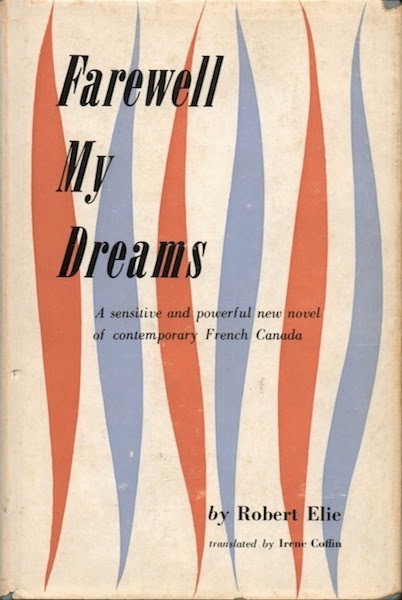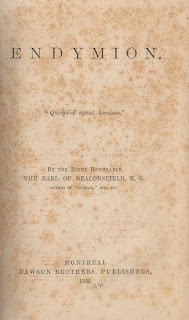Yellow-Wolf & Other Tales of the Saint Lawrence [Divers]
Philippe-Joseph Aubert de Gaspé [trans Jane Brierley]
Montreal: Véhicule, 1990
Philippe-Joseph Aubert de Gaspé [trans Jane Brierley]
Montreal: Véhicule, 1990
159 pages
Philippe-Joseph Aubert de Gaspé follows Arthur Hailey, William C. Heine, Tom Alderman, Richard Rohmer, Bruce Powe, and Joy Carroll as the seventh Canadian novelist I ever read. Three things set him apart, the first being that he was Canadien, in the nineteenth-century definition of the word. The second is that he was from the nineteenth century. The third is that he is a different class of writer. The Last Canadian has nothing on Les Anciens Canadiens.
Set in and around the conquest of New France, Les Anciens Canadiens (1863) was a critical and commercial success in the years preceding Confederation. It is by turns a historical novel, a supernatural novel, a religious novel, a gothic novel, a horror novel, a war novel, a memoir, and a romance. It was also the first Canadien novel to be translated twice into English; by Georgians M. Pennée (1864) and Charles G.D. Roberts (1898). In 1996, it was translated a third time by Jane Brierley. Her Canadians of Old is the only complete translation.
Since my teenage years, when I first read the Roberts, I've been struck by the focus on Les Anciens Canadiens to the exclusion of Aubert de Gaspé's other writings. It wasn't until 1988, 122 years after the first French-language edition that there was an English translation of his Mémoires. That translation, A Man of Sentiment, was also by Jane Brierley.
Yellow-Wolf & Other Tales of the Saint Lawrence, was the second Brierley Aubert de Gaspé translation. In a sense, she was at the end, or rather after the end as the author died decades before Divers first appeared in bookstores. It presents four pieces composed late in life, discovered amongst family papers. Writes the 1893 editor in his avant-propos: "Je prie le lecteur bienveillant de prendre en considération que ce sont les derniers écrits d'un octogénaire, qui est décédé avant d'avoir eu l'avantage de pouvoir les repasser."
The note isn't entirely honest in that two of the four had appeared previously in 1866 numbers of Le Foyer Canadien. Brierley takes a small liberty in rearranging the order. And why not? It's not as if Aubert de Gaspé had a say in Divers, or whether it would be published in the first place.
Yellow-Wolf & Other Tales of the Saint Lawrence, was the second Brierley Aubert de Gaspé translation. In a sense, she was at the end, or rather after the end as the author died decades before Divers first appeared in bookstores. It presents four pieces composed late in life, discovered amongst family papers. Writes the 1893 editor in his avant-propos: "Je prie le lecteur bienveillant de prendre en considération que ce sont les derniers écrits d'un octogénaire, qui est décédé avant d'avoir eu l'avantage de pouvoir les repasser."
The note isn't entirely honest in that two of the four had appeared previously in 1866 numbers of Le Foyer Canadien. Brierley takes a small liberty in rearranging the order. And why not? It's not as if Aubert de Gaspé had a say in Divers, or whether it would be published in the first place.
So we begin with 'Yellow-Wolf, 'Le Loup-Jaune' in Divers. The longest of the four, it takes the form of a tale told the author as a very young man by a elderly Malecite chieftain. The supernatural figures, as does brutal reality in the form of torture he suffered in Iroquois captivity. In 'Woman of the Foxes' ('Femme de la tribu des Renards') the victim this time is a young Iroquois slave girl who is acquired by a forefather of the author's dear friend Antoine -Gaspard Couillard. 'Big Louis and the Legend of Indian Lorette' ('Le Village indien de la Jeune-Lorette'), the finest of all four, relates to an exchange between the author and Big Louis, a Huron known for his intelligence and repartee. The latter shares the story of the great serpent, which very nearly brought an end to his people, all the while recognizing that he is sharing the tale with a man whose own people, religion, and drink has brought even greater devastation.
The final piece, 'General Wolfe's Statue' ('La statue de général Wolfe') is something of a detective story in which the author shares his findings and theories as to the origin of a less-than-life-size wooden tribute that once stood at the corner of du Palais and Saint-Jean in Quebec City. Murder figures! The translator continues the research in her endnotes.
 |
| The statue in its current location at the Morrin Centre, Quebec City. |
Jane Brierley was awarded the 1990 Governor General's Award for English-language Translation for this book, but she brought so much more. She adds an introduction and meticulous annotations. Each of the four pieces is preceded by a "translator's advice to the reader," providing context.
The tales themselves comprise just 84 pages, but Yellow-Wolf & Other Tales of the Saint Lawrence is not a fast read. There is the richness of style, there is the weight of history and all that, and there is artifice to be recognized. Canadians of Old is most certainly the place to begin with Aubert de Gaspé... after that, A Man of Sentiment. But how wonderful that this exists!
The tales themselves comprise just 84 pages, but Yellow-Wolf & Other Tales of the Saint Lawrence is not a fast read. There is the richness of style, there is the weight of history and all that, and there is artifice to be recognized. Canadians of Old is most certainly the place to begin with Aubert de Gaspé... after that, A Man of Sentiment. But how wonderful that this exists!
Object: A trade size paperback, Yellow-Wolf & Other Tales of the Saint Lawrence is one of the the most attractive books in Véhicule's fifty-one year history. Credit goes to the translator who worked with J.W. Stewart on its design. The interior features thirteen illustrations, a map, and a photograph. The striking cover painting is a self-portrait by Huron chief Zacharie Vincent (1815-1886).
Access: Used copies listed online range between $9.76 and $131.12. I recommend the one going for $9.76. Better yet, pristine, unused copies can be purchased directly from the publisher at $14.95 through this link.
The original French, Divers, was first published in 1893 by Beauchemin. A Gatineau bookseller is offering a library discard of the first edition at $41.60. It has been rebound in just about the ugliest boards imaginable, but still seems a bargain.
Divers can be read online here courtesy of the University of Toronto and Internet Archive.


















































